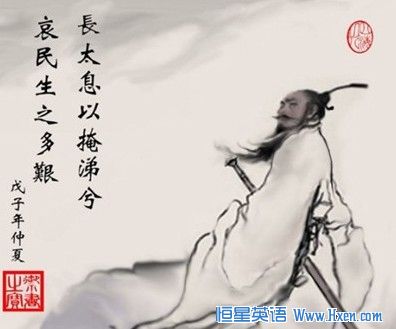端午节:粽叶飘香品《离骚》
|
Li Sao is a Chinese poem dating from the Warring States Period, largely written by Qu Yuan (340 BC - 278 BC) of the Kingdom of Chu. One of the most famous poems of pre-Qin China, it is a representative work of the Chu Ci form of poetry.
The title's meaning has been debated about even in historical times. Sima Qian interprets the title as "Woes of Departure" i.e. Qu Yuan's exile, while Ban Gu interprets it as "Encountering Trouble". Sima Qian's interpretation is the more adopted one, though recent scholars also theorise that Li Sao is simply a different way of writing Lao Shang; the latter is a generic name for a Chu song. In English the title is often translated as either The Lament or Encountering Trouble. The poem has a total of 372 lines and about 2400 characters, which makes it one of the longest poems dating from Ancient China. While the precise date of composition is unknown it is one of Qu Yuan's later works, written after his exile by King Huai I of Chu. As a representative work of Chu poetry it makes use of a wide range of metaphors derived from the culture of Chu, including shamanistic elements such as divination and the presence of spirits, as well as references in ancient history and legendary figures. Because of these influences the poem is seen as an initiator of a Romantic tradition of poetry in China. |









